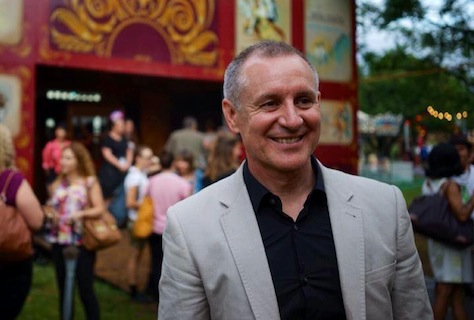After today’s state elections in two Australian states, the center-left Australian Labor Party has lost power after 16 years in Tasmania and it may yet still lose power in South Australia, where the race remains too close to call. ![]()
![]()
![]()
If Labor hangs onto government in South Australia under premier Jay Weatherill, he’ll be the last Labor premier left standing in any Australian state, capping a catastrophic electoral run — just six years ago, Labor controlled the government in every Australian state. If the center-right Liberal Party emerges victorious in South Australia, Labor will control no state governments (though it remains in power in the Australian Capital Territory of Canberra).
In Tasmania, where Labor was believed to have had a better chance of hanging onto power, premier Lara Giddings lost her bid to win a fifth consecutive Labor government. With around 80% of the vote counted, Labor had won just 27% of the vote and six of the Tasmanian House of Representative’s 25 seats. The Liberal Party, under the leadership of Will Hodgman, who is set to become Tasmania’s new premier, will win at least 14 seats.
In South Australia, however, Weatherill could still remain premier, given the tight margin. Labor has lost ground, but not nearly as much as expected, and it’s been to the benefit of not only the Liberals, but also the South Australian Green Party. Going into today’s election, Labor controlled 26 seats in the 47-member House of Representatives (the lower house of the South Australian parliament), the Liberals controlled 18 and independents controlled three. As the final votes are counted, Labor now has 23 seats, Liberals hold 22 seats, and two independents seem increasingly likely to determine who will form the next government.
A conservative Liberal/National Coalition government under prime minister Tony Abbott swept into power last September at the national level, ending six years of rocky Labor government marked by infighting between supporters of prime ministers Kevin Rudd and Julia Gillard. Rudd initially brought Labor to power in 2007, but his Labor caucus pushed him out of office in favor of Gillard in 2010. Shortly before last year’s election and facing a landslide defeat under Gillard, the Labor caucus turned back to Rudd, who served as prime minister again for the final three months of Labor’s government. Both Rudd and Gillard have retired from politics, and former financial services minister Bill Shorten was elected Labor’s new national leader in October.
State-level setbacks have become something of a gruesome spring ritual for Labor over the past few years: Continue reading Labor nearly shut out of Australian state government
